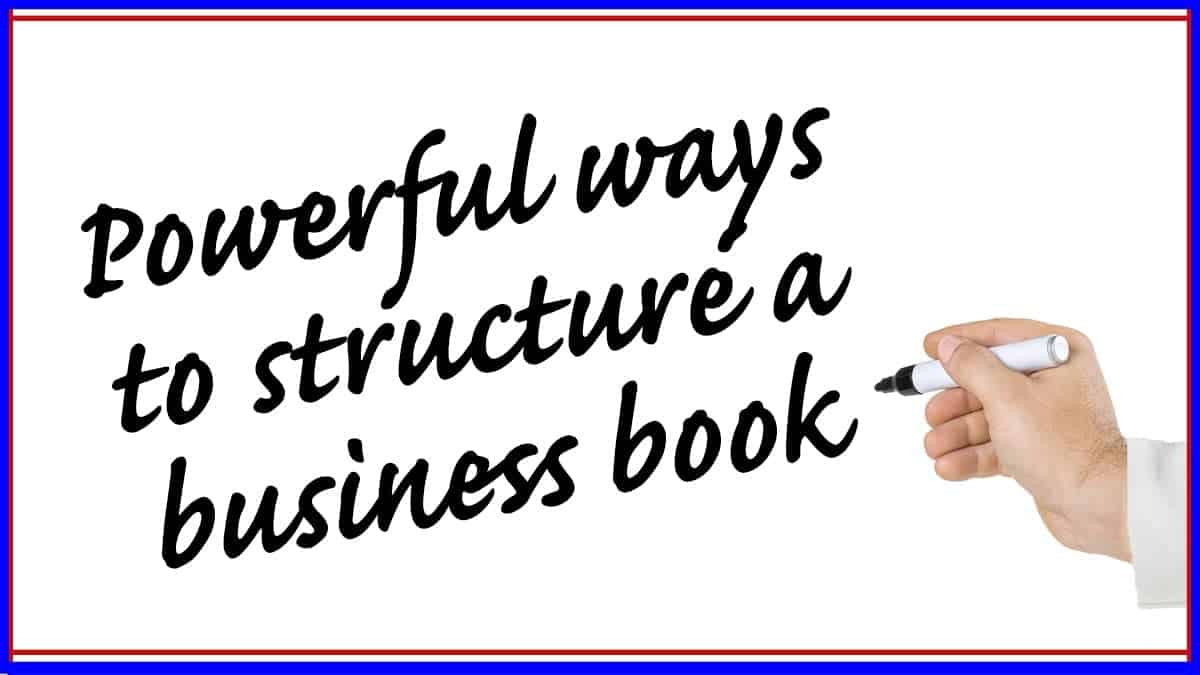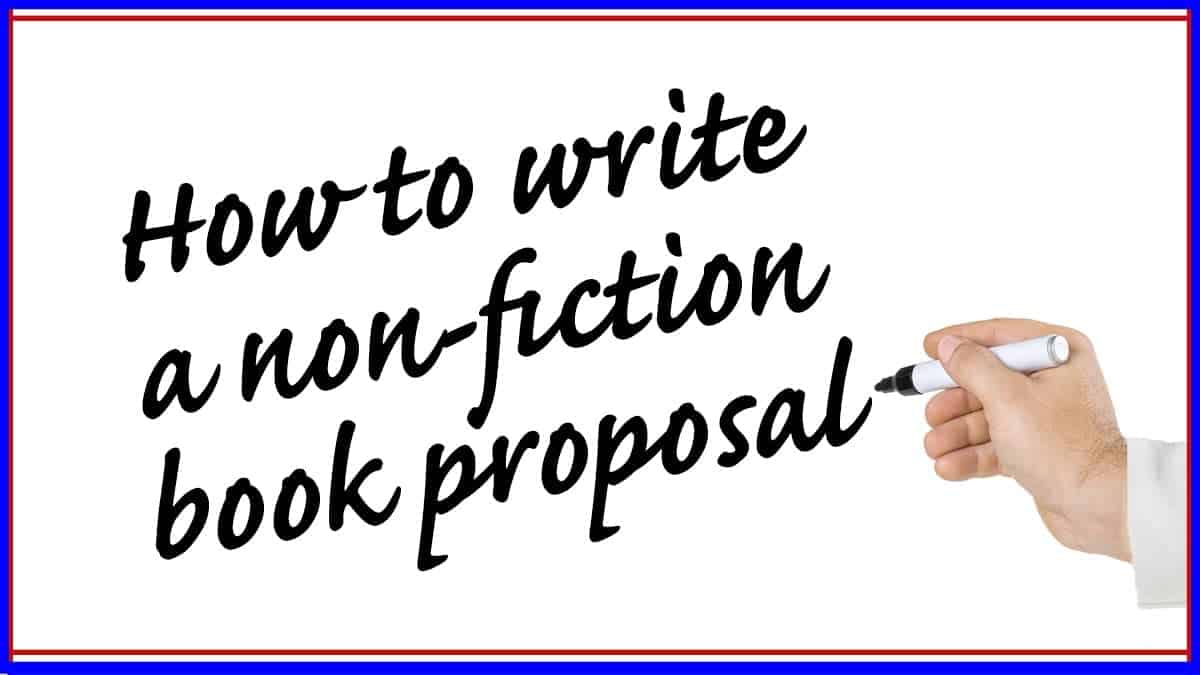How to Write a Business Book
Setting out to write a business book can be an intimidating proposal. There’s information to gather and organize; topic, structure, and format to consider; endless questions about word choice, target audience, and more.
It gets even more complicated if you want your book to be published by a standard publisher, for now you have to think about agents and publishers, cover design, pricing, and more.
We’re Barry Fox and Nadine Taylor, New York Times bestselling authors and ghostwriters of business books and works in other genres. In this article, we’ll look at the questions people ask us about how to write a business book and get it published.
Let’s begin at the beginning, with topics and types of business books and book formats.
1. Are there different types of books on business?
There are many, including:
- Biography/autobiography – the story of a company or business leader. (Click for tips on How to Begin a Business Memoir.)
- New ideas – introducing new concepts or reimagining old ones
- From life to business – applying lessons learned in life to business
- From business to life – transferring concepts from business to other aspects of life
- Wealth-enhancing ideas – approaches to making money
- Leadership – how to get people to do what you want them to do, willingly. (For more, see our How to Begin A Business Leadership Book.)
In addition, business books can deal with leadership, finance, management, sales, innovation, company culture, and many other related topics. See 12 Ways to Write a Business Book for more approaches to writing a business book, and “Themes in Books” for help with finding your organizing principle.
2. How do I structure a business book?
There are many possible approaches, including:
- “Presenting a New Idea” – a discussion of a new idea, broken into several parts
- “We’ve Got Trouble” – an examination of a problem, with a mention of the solution
- “Smashing the Paradigm” – a look at why our current understanding of some aspect of business is completely wrong
- “Telling a Story or Fable” – an entertaining way to introduce a concept
- “Borrowing from Other Fields” – an application of lessons learned in other areas to business
- “The Encyclopedic Approach” – a reference book addressing certain aspects of business
- “Topic 101” – a “basic course,” in book form
There is no “best” business book structure. The key is to find the format that works best for your book. For a more detailed look at these business book formats, see our article, “7 Winning Ways to Structure a Business Book.”
3. How do I start it off?
There is no hard-and-fast rule for determining whether you should begin your business book with startling statistics, a quote, a case history, your own story, or something else.
A look at major New York Times best-selling business books shows there are five popular approaches:
- A story illustrating the book’s topic, used in The Tipping Point
- A story about why the author(s) wrote the book, used in Think Like a Freak
- A dictionary definition, used in Outliers: The Story of Success
- An example of the phenomenon/situation the book is describing, used in Thinking, Fast and Slow
- An explanation, used in Money: Master the Game
For a more detailed discussion of each of these openings, see our article, “5 Bestselling Ways to Begin a Business Book.”
4. What should I think about before beginning to write?
There are many issues and questions to consider, including:
Why you are writing a book – Is it to increase sales? Share your business philosophy with the world? Tell your company’s story? Book more speaking engagements? The answer to this question will help determine your book’s style and substance and prevent time-consuming false starts and U-turns in the writing.
Who you want to read it – “Everybody” is not the best answer. Figure out who makes up your specific audience—those genuinely interested in hearing what you have to say. This will help you determine the book’s content, style, and voice.
What do you want readers to know/feel when they’ve finished your book – Is the point to educate your readers? Get them to support your new idea? Have them hire you? Feel as if they’ve enjoyed a great story? Zeroing in on your overall message will help you determine how to format your book.
How you’d like the book to be published – Will you go with standard, self, or academic publication? Your choice will affect the book’s content and style.
5. How should I prepare to write my book?
While you’re thinking through the issues above, you can start to gather the materials you’ll need when you begin to write. These vary according to what you’ll be covering in your book and may include:
- Articles by or about you and your company
- Transcripts of your speeches, or those by relevant associates
- Transcripts of podcasts or other presentations
- Blog posts, whether by you or your associates
- Company white papers, newsletters, manuals, and guidelines
- Relevant documents, perhaps memos or contracts that detail your company’s history
- Photographs
- Books and other outside sources you may want use as references, or as a source for quotes
In addition, you can interview key associates and other people to get necessary information.
6. How does one actually write a business book?
The process is just like that of writing any other non-fiction book. And it involves lots of writing and revising.
Some people like to begin by creating a detailed outline, while others prefer to dive right in and see where the book “wants to go” on its own.
Some authors sit at the computer and dictate into a transcription program, others prefer to write it by hand, and have it typed up later.
But while materials and method vary from person to person, there’s one imperative for all writers: you have to write, write, and write more!
Time, routine, and regularity are key to completing your book. You must devote ample time to the effort; develop a routine, which may be a specific time and place you write every day; and stick to your writing schedule.
For more on the process of writing a book, see “10 Habits of Successful Book Writers.”
7. How long should the book be?
The standard length for a business book has long been about 200-250 pages. This equates to between 50,000 and 60,000 words.
Shorter books are becoming more popular, with “shorter” meaning quick reads of 30,000 to 40,000 words.
Ebooks, especially those sold inexpensively or given away for free, may be as short as 6,000 to 10,000 words.
8. How long does it take to write a business book?
The same amount of time it takes to write similar non-fiction books, such as health books.
If you’ve thought through your reason for writing and other matters described above, and have gathered all the necessary materials, you should be able to write your book within a year. That is, if you’re diligent about writing every day, and remember the importance of time, routine, and regularity.
If not, the writing process can drag on forever. When that happens, you want to reconsider your motives for writing, or hire a business book ghostwriter.
9. Why not just edit transcripts of my speeches together?
There’s a major difference between communicating ideas via a speech and doing so through the written word.
When you give a speech, your mere presence has a tremendous influence on how people respond—often much more than the text of your presentation.
A great deal of what people take away from your speeches will be determined by your vocalization, gestures, and facial expressions, none of which will be present in your book.
That’s why the text works that as a speech often flounders as a book.
10. How do I write a bestselling business book?
Don’t set out to write a bestseller. That will have you chasing fads and torturing your ideas to align with keyword research and networking models.
Instead, write the best book you possibly can. Pour your heart into your story. Present your ideas in a clear and compelling fashion. Make readers yearn for the change you propose, and otherwise fill your book with great content.
Write a book that readers simply cannot put down and can’t wait to tell their friends about. That gives you a tremendous leg up when it comes to sales and best seller lists.
11. Suppose I need help writing my business book?
There are several experts who can help you write a business book, including a business book ghostwriter, book coach, developmental editor, line editor, copy editor, and proofreader. In brief, the:
- ghostwriter writes your book for you
- book coach educates you and guides you through the process
- developmental editor reviews your manuscript and makes suggestions for major changes
- line editor tunes up your manuscript’s style and langue
- copy editor checks the manuscript for errors, omissions, and redundancies
- proofreader looks for errors and inconsistencies in the manuscript
For more, see “Book Writing Helpers, From ‘360 Degrees’ to ‘Pinpoint’” and “Copy Editor or Proofreader – What’s the Difference?”
12. How do I get my business book published?
Exactly as you would any other non-fiction book.
The two primary options are standard publishing and self-publishing.
The basic difference is that with standard publishing you have to convince a publishing house to invest their time and money into producing, distributing, and to some extent marketing your book. With self-publishing, you do it yourself.
Another difference is that there’s no guarantee you’ll be able to get your business book published the standard way, while with self-publication, it’s guaranteed.
For a look at self-publication, see “Introduction to Self-Publishing.”
13. Do I need to write a business book proposal?
You only need to write a book proposal if you intend to go for standard publication.
Once a literary agent demonstrates interest in you and your book idea, you show her your book proposal. If she agrees to represent you, she’ll show the proposal to the appropriate publishing houses, hoping one will purchase your book.
Then, with contract in hand, you’ll deliver to the publisher a full manuscript that matches the specifications in your proposal.
For more, see our article on writing a non-fiction book proposal. You can also watch Barry’s YouTube video on “Writing a Great Non-Fiction Book Proposal.”
14. Should I self-publish my book?
This is an excellent question, which leads to another question: Why are you writing this book?
What is your goal? To make money from sales of the book? Raise your media profile? Introduce your product/service to potential customers? Share your concept with the world? For more on this, see, “Why Are You Writing Your Book?”
Your answer to this question will help you decide which is best for you: standard publication, which means getting your book published by Simon & Schuster or another major publisher, or self-publication.
15. Do I have to sell my book in “real” bookstores to make writing it worthwhile?
No. Selling books in brick-and-mortar bookstores is just one way to profit from your book. There are many others, and here are some of the approaches our clients have successfully used:
- Selling their book on Amazon and other online outlets
- Using their book to present their expertise and get invited to appear on radio and television programs
- Including their book as part of a larger package of consulting and/or educational services sold to clients
- Using their book to explain their philosophy/approach as they seek promotion or other professional advancement
- Selling their book at seminars and other appearances.
- Giving their book away to generate interest in their product/service
- Using their book to memorialize their achievements and/or company’s successes.
16. Bottom line: Will my business book be profitable?
As with all aspects of business, there’s no guarantee of financial success.
But keep your ultimate goal in mind.
If your true ambition is to introduce a new concept or present your hard-learned lessons to the world, earning a profit from your book should not be the primary concern.
It may be that profit is your driving motivation. In that case, remember that the increase in media attention and business generated by your book can greatly enhance your revenue, even if the book itself doesn’t make a lot of money.
17. Doesn’t every author want to write a “big” book?
Aspiring authors often think BIG—a quarter-million-dollar advance from a major New York publisher, a New York Times bestseller, a 20-city tour complete with multiple appearances on all the big shows!
Thinking big is great.
But sometimes it’s better to think small.
And by “better,” we mean more profitable
We learned that going small can be lucrative in a big way from a man who asked us to help him write a business book many years back. He intended to use the book to get himself hired to give more seminars, building the cost of giving each participant a “free” copy into his seminar fee.
Being on the bestseller list or the big TV shows was of no concern to him. He didn’t care about making money directly from book sales, or winning the Pulitzer Prize.
He made a lot of money off his book, even though his profits from direct sales of the book were negligible.
So, big or small?
It depends on your goals, which are among the first things you should think about when you start to write your book. Better yet, think about them before you begin.
Want to write a business book, but need help?

Contact us!
We’re Barry Fox and Nadine Taylor, business book ghostwriters and professional authors with a long list of satisfied clients and editors at major publishing houses.
You can learn about our business ghostwriting work and credentials on our Business Ghostwriter Page.
If you’d like more information about our ghostwriting process, call us at 818-917-5362 or use the contact form below to send us a message. We’d love to talk to you about your exciting business book idea!
Please Note: Although we’re based in Los Angeles, California, we travel around the U.S. and abroad to meet with our authors. We do not ghostwrite screenplays, books for children, poetry, or school papers.










